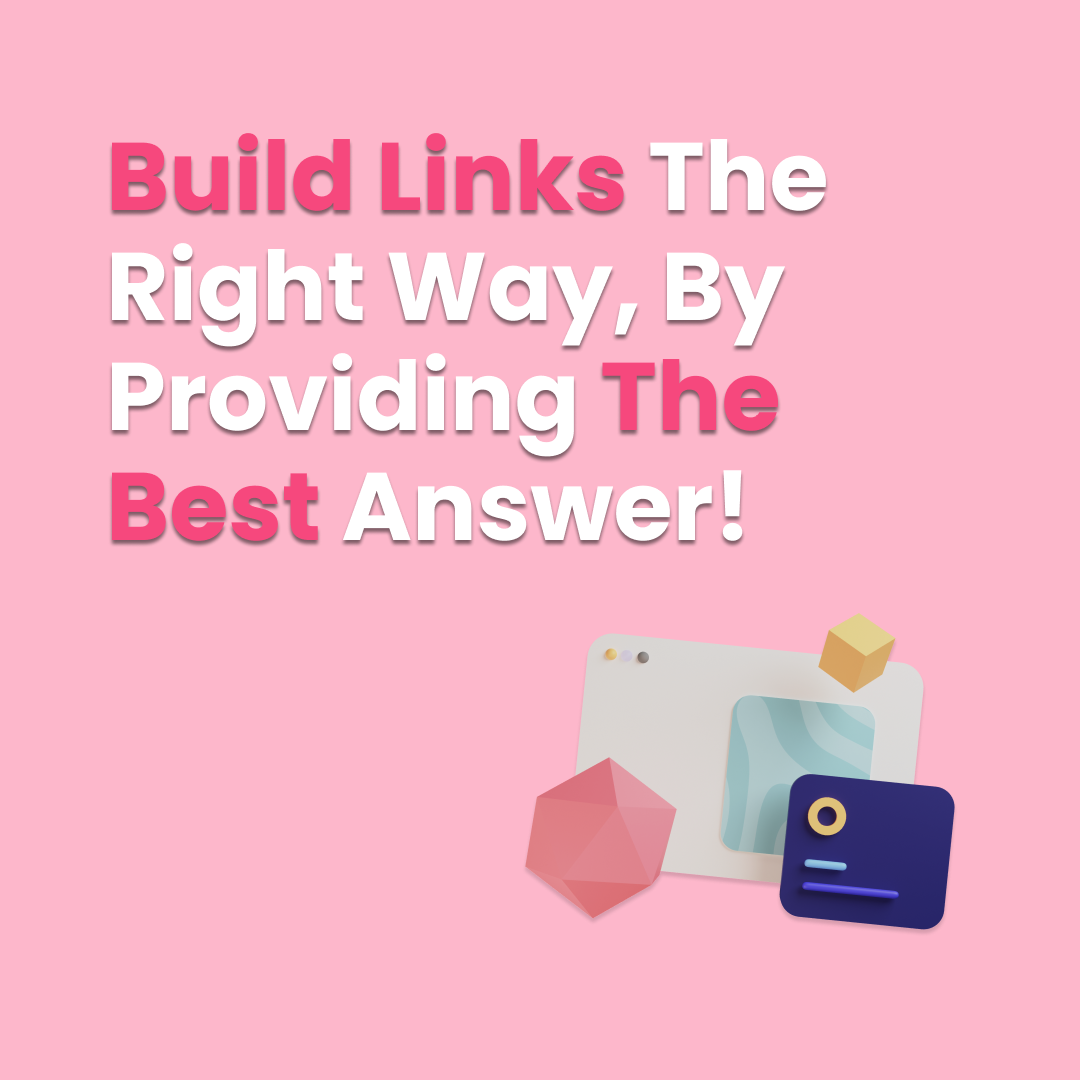Links are essential to your website. They provide ways for people to find you, and they send a strong signal to Google and other search engines that your content is useful and interesting, so they’ll rank it higher in search results.
Building links can take a while, though. There’s a lot of companies out there promising instant results, but the truth is, quick fix bulk-bought links from low authority websites aren’t going to improve your rankings. They might even harm your rankings – Google employs teams of people to identify and penalise this kind of behaviour.
Don’t get us wrong, not all paid links are automatically bad, but it’s better to build links naturally. And the best way to do that is to focus on answering questions with your content.
Informational Search Questions
People use the Internet for all kinds of weird/wonderful/terrible things, but one of the main reasons people open up a browser is informational searches. We can divide informational searches into three main categories;
- Simple questions and answers. What’s the capital of Guatemala? Where do wasps build nests? When was the NHS created?
- Problem solving questions. How do I stop my hair falling out? What’s the quickest way to get rid of a wasp nest? How do you make sweet waffles?
- Purchase-related questions. What’s the best UK hair transplant clinic/best wasp spray/waffle-maker?
For SEO purposes, all three categories of question are potentially useful. As marketers, we spend a lot of time considering the buying journey of customers – from their initial awareness of a product or service, then as they learn more about it, comparing different solutions, and eventually making a first purchase (or second, or third).
But what does this have to do with link building? Well, if your content can provide the best answer to informational search questions (for every stage of the buying journey), other websites are more likely to use it – for quotes, or to provide further information for their own audience.
Providing The Best Answers To Informational Searches
Designing and creating the content that provides the best answers isn’t easy. Here’s three things you can do to give you the best possible start.
- Create a mindmap (or spider chart, or whatever diagram you prefer) that lays out all the different topics that you want to talk about in your content. Ask yourself – am I a good source of information for this topic? What personal experience, specialist knowledge, or authority can I add to my content, to make it stand out?
- Research the competition. Look at content similar to what you’re trying to create, and focus on the best pieces (with the most links) from the sites with the highest authority. If you’re using SEO tools, then look at the link profiles for these pages – you should see that their links have grown naturally over time, rather than jumping up suddenly (which might indicate bulk-bought paid links).
Assess these pages carefully, taking note of what other keywords they rank for. How are you going to improve on these pages?
- Optimise your content structure. There are tried and tested content formats that work well to answer informational searches, such as ‘how-to’ guides, statistical reports and surveys, and fact-files. You can use these to help shape your content, and make it easier for the reader to understand.
Think carefully about the page structure, and whenever possible try to use summaries, bullet points and end-of-article ‘takeaways’ to improve readability. These techniques also increase your chances of being selected for featured snippets on search results pages.
Creating top-quality content is just one of the ways Trio Media builds links for our clients. Our off-site SEO strategies include PR, outreach, and off-site content creation, to get your website working for you. Get in touch to find out more about our flexible, contract-free SEO packages.



